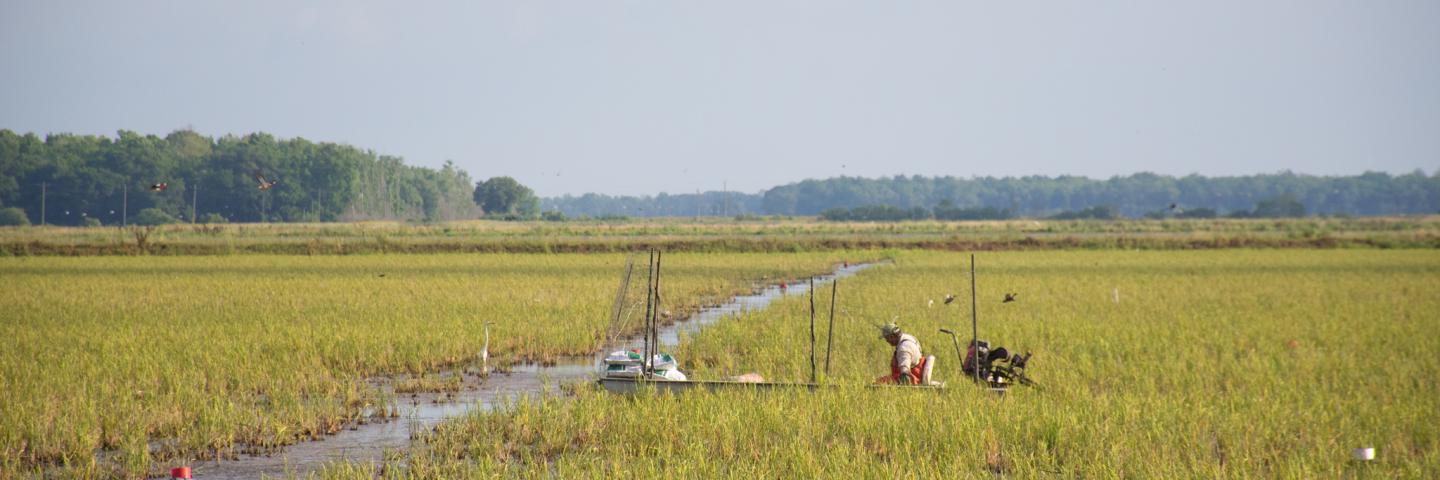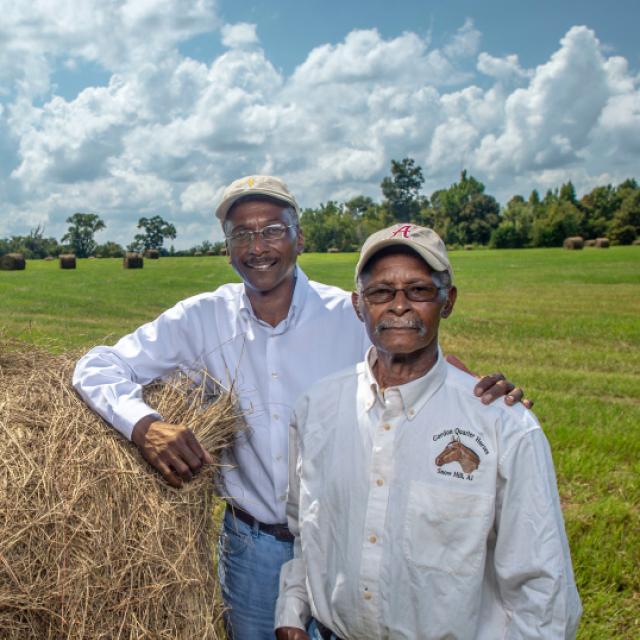Notice


The Environmental Quality Incentives Program (EQIP) is NRCS’ flagship conservation program that helps farmers, ranchers and forest landowners integrate conservation into working lands.
From weather to pests, each American farmer faces a unique set of challenges. The Environmental Quality Incentives Program (EQIP) provides financial and technical assistance to agricultural and forestry producers to address natural resource concerns and deliver environmental benefits such as improved water and air quality, conserved ground and surface water, reduced soil erosion and sedimentation and improved or created wildlife habitat.
Applications for EQIP and all Farm Bill programs are accepted year-round. The first-round of FY 2025 funding applications were due by November 22, 2024. Contact your local field office for additional information.
EQIP - Application Sign-up and Cut-off Dates
1st Sign-up Timeline
- Sign-up 1 Ends - 11/22/2024
Act Now Timeline
- Sign-up 1 Ends - 3/7/2025
NRCS accepts EQIP applications year-round but establishes cutoff dates to make funding selections for eligible, screened, and ranked applications.
Benefits
Through EQIP, NRCS provides agricultural producers with financial resources and one-on-one help to plan and implement improvements, or what NRCS calls conservation practices. Using these practices can lead to cleaner water and air, healthier soil and better wildlife habitat, all while improving agricultural operations. Through EQIP, you can voluntarily implement conservation practices, and NRCS co-invests in these practices with you.
Program at a Glance
EQIP provides financial and technical assistance to agricultural producers to address natural resource concerns and deliver environmental benefits such as improved water and air quality, conserved ground and surface water, increased soil health and reduced soil erosion and sedimentation, improved or created wildlife habitat, and mitigation against increasing weather volatility. Initiatives include High Tunnel, Longleaf Pine, Beginning Farmers, On Farm Energy, Organic, Socially Disadvantaged Farmers, Strikeforce, Urban and Working Lands for Wildlife – Gopher Tortoise.
Financial assistance covers part of the costs from implementing conservation practices. NRCS offers about 200 practices depending on where your land is located. These practices are geared towards working farms, ranches and forests and provide producers with many options for conservation.
Applications are ranked, and if yours is funded, NRCS will offer you an EQIP contract to receive financial assistance for the cost of implementing practices. Payment rates for conservation practices are reviewed and set each fiscal year. More information on this process is available on our How Do I Apply webpage.
If you are an Historically Underserved Farmer or Rancher, you may be eligible for the advance payment option.
EQIP Initiatives
Targeted EQIP financial assistance is available through general EQIP, and several other initiatives. These initiatives address priority natural resource concerns on the most vulnerable lands, target conservation assistance in high priority watersheds, or help stimulate the development and adoption of innovation and technology.
EQIP-CIC Application Sign-up and Cut-off Dates
Applications are accepted on a continuous basis; however, NRCS selects applications for funding periodically throughout batching periods with specific cutoff dates. The first cutoff date is November 22, 2024. Applications received after this date will be held and considered for subsequent funding announcements as available funds permit (see ACT NOW exception below).
ACT NOW
Beginning this fiscal year, Louisiana NRCS has elected to use ACT NOW to help streamline application processing for selected programs. ACT NOW allows us to immediately approve and obligate a ranked application in a designated ranking pool when an eligible application meets or exceeds a State-established minimum score. This process is to help us in expediting processing of applications.
You don’t need to do anything extra to qualify for ACT NOW processing and you don’t need to ask to be included. Applications eligible for any of the identified ACT NOW ranking pools listed below will be accepted on a continuous sign-up basis in the order received until the applicable application deadline. Any application that ranks at or above the State-established threshold ranking score will be pre-approved as funds are available.
After the last ranking deadline, if funding is still available, applications with ranking scores less than the State-established threshold ranking score may be pre-approved in ranking order.
See more about ACT NOW in Louisiana.

Program at a Glance
EQIP-CIC provides financial assistance to address priority resource concerns, including sequestering carbon and improving soil health in high-priority areas. Through these contracts, NRCS works with producers to strengthen the quality and condition of natural resources on their operations using management practices that target resource concerns including degraded soil condition and soil erosion. The focus within Louisiana for CIC is to increase the adoption of Cover Crops, and Residue and Tillage Management on Cropland. Conservation Incentive Contracts last five years.
EQIP-Organic Transition Initiative (OTI) Louisiana
EQIP-Organic Transition Initiative (OTI) Louisiana
Learn MoreReady to get started?
Contact your local service center to start your application.
How to Get Assistance
Do you farm or ranch and want to make improvements to the land that you own or lease?
Natural Resources Conservation Service offers technical and financial assistance to help farmers, ranchers and forest landowners.

To get started with NRCS, we recommend you stop by your local NRCS field office. We’ll discuss your vision for your land.
NRCS provides landowners with free technical assistance, or advice, for their land. Common technical assistance includes: resource assessment, practice design and resource monitoring. Your conservation planner will help you determine if financial assistance is right for you.
We’ll walk you through the application process. To get started on applying for financial assistance, we’ll work with you:
- To fill out an AD 1026, which ensures a conservation plan is in place before lands with highly erodible soils are farmed. It also ensures that identified wetland areas are protected.
- To meet other eligibility certifications.
Once complete, we’ll work with you on the application, or CPA 1200.
Applications for most programs are accepted on a continuous basis, but they’re considered for funding in different ranking periods. Be sure to ask your local NRCS district conservationist about the deadline for the ranking period to ensure you turn in your application in time.
As part of the application process, we’ll check to see if you are eligible. To do this, you’ll need to bring:
- An official tax ID (Social Security number or an employer ID)
- A property deed or lease agreement to show you have control of the property; and
- A farm number.
If you don’t have a farm number, you can get one from USDA’s Farm Service Agency. Typically, the local FSA office is located in the same building as the local NRCS office. You only need a farm number if you’re interested in financial assistance.
NRCS will take a look at the applications and rank them according to local resource concerns, the amount of conservation benefits the work will provide and the needs of applicants. View Application Ranking Dates by State.
If you’re selected, you can choose whether to sign the contract for the work to be done.
Once you sign the contract, you’ll be provided standards and specifications for completing the practice or practices, and then you will have a specified amount of time to implement. Once the work is implemented and inspected, you’ll be paid the rate of compensation for the work if it meets NRCS standards and specifications.

